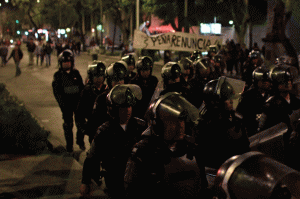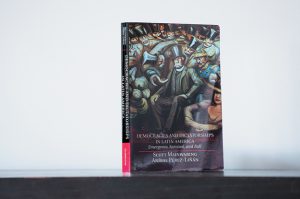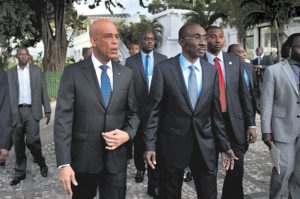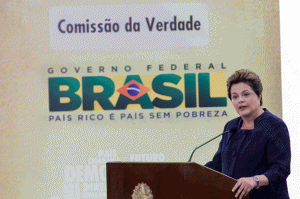Campaigns Matter in Canada Too
Canada’s Parliament is closing for the summer and the next election campaign has begun in earnest. While the official campaign start is on September 14 this year—gearing up for the country’s first fixed date election on October 19—the major political parties have actively been in election mode in the past year with ads, promises and … Read more
Monday Memo: Mexican Elections—G7 Climate Summit—EU-CELAC Summit—Argentine Debt—Honduras Protests
This week’s likely news stories: Mexico’s ruling party wins the congressional elections; Canada and Japan block a G7 statement on carbon emissions; Latin American officials to discuss Mercosur at EU-CELAC Summit; Argentina’s debt inflates after U.S. court ruling; protestors demand Honduran president’s resignation. Mexico’s Ruling Party to Maintain Majority in Lower House after Elections: Despite … Read more
Youth Voters Prove Crucial for Guyana and Suriname Elections
In May, South America’s two smallest countries went to the polls with differing results. On May 11, Guyana’s People’s Progressive Party/Civic (PPP/C) was ousted from government after 22 years. Two weeks later in neighboring Suriname, incumbent president and former military leader Dési Bouterse led his National Democratic Party (NDP) to a handy victory and looks … Read more
Bachelet’s Approval Rating Drops to Historic Low
Despite last month’s cabinet shuffle in response to a series of corruption scandals that have shaken Chile’s political establishment, President Michelle Bachelet’s approval rate has dropped to an all-time low of 29 percent, according to a poll conducted by Gfk Adimark. “Both the anticipated Cabinet change and her annual State of the Union address had … Read more
Civil Society Groups Decry Education Reform Rollback in Mexico
A group of civil society organizations and ordinary citizens denounced on Monday the suspension of a key provision of the sweeping education reform package signed by President Enrique Peña Nieto in September 2013. The provision—which provided for the evaluation of Mexican teachers and linked raises and promotions to candidates’ performance on these evaluations—was suddenly and … Read more
Monday Memo: Marches in Venezuela—Guatemalan Protests—Chilean Education Law—Transgender Inmates in Rio—Colombian Murder Trial
Thousands Amass in Venezuela for Anti-Government Protest: Nearly 3,000 Venezuelan demonstrators clothed in white marched in Caracas on Saturday in the largest protest since last year’s surge of anti-government demonstrations. In a video filmed from his jail cell prior to the protests, former opposition Mayor Leopoldo López encouraged supporters to protest peacefully to demand the … Read more

Security Challenges Threaten Elections In Guerrero, Mexico
In late 2014 and early 2015, Mexican President Enrique Peña Nieto’s Partido Revolucionario Institucional (Institutional Revolutionary Party—PRI) faced violent protests and demands for his resignation after the disappearance of 43 student teachers in the town of Iguala in Mexico’s southwestern Guerrero state. The turbulence led some academics, such as John Ackerman, to hastily predict the … Read more
Is Hillary Still the Best Candidate?
Following US presidential politics is a favorite Canadian pastime, and the2016 campaign will be no exception. While the Canadian opinion is ultimately inconsequential, as we will continue to be a key ally, friend and economic partner to the USA, no matter who wins the presidential election, I can already predict that an overwhelming majority of … Read more
Veteran Judge Sworn in as Guatemala’s New Vice President
Judge Alejandro Maldonado Aguirre was sworn in as Guatemala’s new vice president on May 15 after his predecessor, Roxana Baldetti, was forced to step down in the wake of a major corruption scandal. Maldonado Aguirre was not originally included in the shortlist of candidates that President Otto Pérez Molina sent to Congress. The original list … Read more
Monday Memo: Guatemalan Protests—Costa Rican Discrimination—Chinese Investment—Guyana Election—Technology in Honduras
Demonstrators Call for Pérez Molina’s Resignation: Thousands of protestors marched across 13 cities in Guatemala on Saturday to call for President Otto Pérez Molina’s resignation. The protests came as a response to a customs tax fraud scandal uncovered by the Comisión Internacional contra la Impunidad en Guatemala (International Commission Against Impunity in Guatemala—CICIG) in April … Read more
Guatemalan Customs Fraud Scandal Taints Lawyers, Judges
On May 8, Guatemalan authorities arrested three lawyers representing defendants in a massive customs tax fraud case known as Caso SAT that has thrown the current administration into a state of disarray and forced Vice President Roxana Baldetti to resign. The UN Comisión Internacional contra la Impunidad en Guatemala (International Commission Against Impunity in Guatemala—CICIG), … Read more
Chilean President Michelle Bachelet Asks Cabinet to Resign as Disapproval Hits Record High
Chilean President Michelle Bachelet called for the resignation of her cabinet Wednesday as the fallout from a corruption scandal among top-level officials continues to take its toll on her administration. The president announced her plans to reshuffle the cabinet the same day a new poll put her disapproval amongst Chileans at a record high. “A … Read more

Democracies and Dictatorships in Latin America
Latin America experienced a dramatic political change in the last quarter of the twentieth century. At the onset of the so-called “third wave” of democracy in 1978, the only democratic regimes were Costa Rica, Colombia and Venezuela. But by 1995, all the countries in the region, with the notable exception of Cuba, were democracies or … Read more

Haiti: Back to the Future?
January 12, 2015, was a grim day in Haiti. Not only was it the fifth anniversary of the devastating earthquake of 2010, it was also the day that President Michel Martelly placed a major question mark over the future of Haiti’s troubled democracy. On that day, Martelly began to rule by decree while a long-simmering … Read more

Brazil’s Truth Commission: Many Recommendations, Little Action
Last December, Brazil’s National Truth Commission handed President Dilma Rousseff a 1,000-page report detailing human rights violations and acts of torture carried out during the country’s 1964–1985 dictatorship. A somber Rousseff recalled her own incarceration and torture as a young guerrilla leader and asked the audience to remember those lost during that dark period in … Read more


